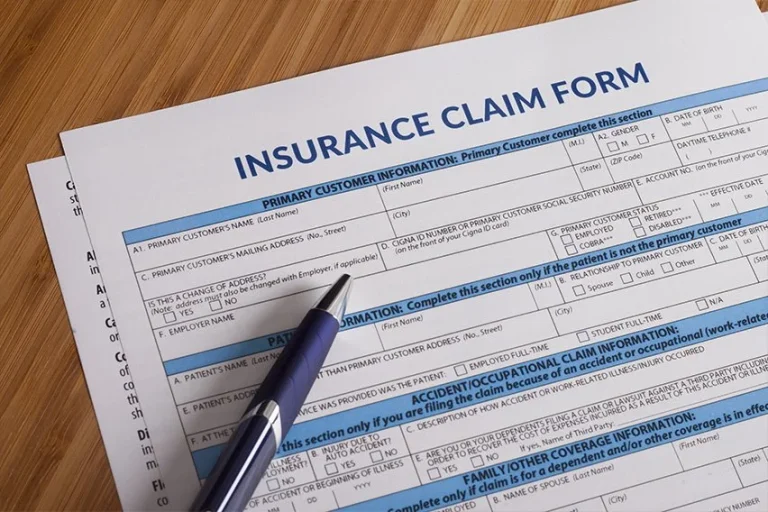How to Choose the Right Insurance Policy
The search for the appropriate insurance policy can be bewildering and overwhelming with numerous options on the market today. In actuality, getting acquainted with some basic insurance know-how will make it simple. It is in that regard that this guidebook explains what insurance is, the importance of insurance, what types are there, benefits, and real-life helpful advice to help people make intelligent decisions.
What is insurance?
Insurance is a contract between an insurance policyholder and the provider, whereby the policyholder pays regular premiums to the latter in return for protection against certain risks. In turn, it enables individuals and organizations to protect themselves from losses arising due to accidents, illness, or natural calamities.
For instance, if an individual is in need of surgery, the firm will cover most or all the expenses thus relieving the person from quite a heavy burden.
How Important Is Choosing the Appropriate Insurance Policy?
In choosing the right insurance, it is important since:
- Insurance for all tastes: Not all insurance coverage suits everybody. For example a young professional may prefer health while a home owner needs property.
- Financial Security: The right policy provides sufficient cover, hence the elimination of financial crisis during times of emergency.
- Cost Efficiency: Choosing a proper policy helps avoid paying for unnecessary coverage or finding gaps in protection for the most important risks.
- Peace of Mind: Knowing you have the right insurance policy gives confidence and reassurance, allowing you to focus on other aspects of life.
Types of Insurance
There are numerous types of insurance, all built for different reasons. Knowing these types should help you narrow down your choices.
Health Insurance
Health insurance covers medical expenses related to doctor visits, surgeries, and hospital stays. Other policies will also cover preventive care like vaccinations and annual check-ups.
Example: A health insurance policy might cover 80% of hospital bills for a surgery, significantly reducing out-of-pocket expenses.
Life Insurance
Life insurance gives the needed financial support for the dependants when a policyholder dies. It ensures dependents are financially secure.
Example: If a parent has life insurance and then dies suddenly, the expenses related to their children’s education can be covered.
Auto Insurance
Auto insurance provides coverage against damages to the vehicle and liability arising because of an accident. Auto insurance is legally compelled by almost every country.
Example: In the event of an automobile accident, the insurance policy can cover repair costs for your vehicle and medical expenses for injured parties.
Homeowners and Renters Insurance
These policies protect property and belongings. Homeowners insurance covers the house structure, while renters insurance focuses on personal possessions.
Example: If a fire damages your home, homeowners insurance can pay for repairs and replacements.
Travel Insurance
Travel insurance provides coverage for cancellations of trips, lost luggage, and medical emergencies during travel. Example: If you lose your luggage on an international trip, travel insurance can reimburse you for the lost items. Disability Insurance This is insurance that replaces a portion of your income if you are unable to work because of injury or illness.
Example: If a construction worker is injured on the job, disability insurance can provide financial support during recovery.
Benefits of Having the Right Insurance Policy
Having the right insurance policy offers numerous benefits:
- Financial Protection: Prevents financial strain during emergencies.
- Legal Compliance: Auto and business insurance ensure that you meet the legal requirements.
- Asset Preservation: It protects valuable possessions like homes, cars, and businesses.
- Access to Services: Health insurance enables access to quality medical care.
- Income Security: Insurance policies on disability and life cover provide continued income to families.
How to Choose an Insurance Policy
When choosing an insurance policy, consider the following factors:
Assess Your Needs
Consider your personal and financial situation. For instance,
What do you want to insure: your health, property, or income?
Are there people depending on your income?
Know Your Cover Options
Review the policy details to ensure it covers your primary concerns. For instance:
Health insurance should include hospitalization and outpatient care.
Auto insurance should cover both damage to your vehicle and liability for accidents.
Evaluate Costs
Consider the premium (amount you pay regularly) and the deductible (amount you pay before insurance kicks in). Strike a balance between affordability and adequate coverage.
Check the Insurer’s Reputation
Research the reputation of the insurance company by looking into their financial stability and customer service. Check other policyholders’ reviews and ratings.
Consider Flexibility
Choose a policy that allows adjustments. Life changes, such as marriage or a new job, may require updating your coverage.
Look for Add-Ons
Add-ons, also known as riders, provide extra coverage. For example:
Critical illness rider for health insurance.
Theft protection for home insurance.
Steps to Choose the Right Insurance Policy
Research
Know about the types of insurance and their characteristics. Utilize online calculators to compare policies.
Consult Experts
Get in touch with insurance agents or financial advisors who will be able to advise based on individual needs.
Compare Policies
Compare policies across various insurance companies. Do not get carried away by premiums; also check for coverage, benefits, and exclusions.
Read the Fine Print
Understand the terms and conditions, exclusions, and claim process. Ensure transparency to avoid surprises later.
Start Small
If you’re not sure, start with a simple policy and add coverage as necessary.
Practical Tips for Making the Right Choice
- Bundle Policies: Most all insurers will give a discount if you combine policies, such as home and auto.
- Review Annually: Life changes. Make sure to go over your policies regularly and make sure they are relevant.
- Avoid Over-Insuring: Too much insurance is an added expense. For instance, if you rent your home, you don’t need homeowners insurance, but rather renter’s insurance.
- Seek Recommendations: Friends and family can give you a better idea of the best insurance providers.
- Negotiate Premiums: Ask the insurers if they can give you a discount or a flexible payment schedule.
Common Mistakes
Focusing Only on Price
The cheapest policy may leave you underinsured. Strike a balance between being affordable and having enough coverage.
Ignoring Exclusions
Exclusions refer to situations where the insurance will not cover. Always check those to avoid surprises.
Delaying Purchase
Waiting too long for insurance increases risks and could result in higher premiums later.
Failure to Update Policies
Life changes, such as marriage or buying a house, may require adjusting one’s insurance coverage.
Real-Life Example
Imagine a young professional, Sarah, who recently bought her first car. She chose a basic auto insurance policy to save money. A few months later, she was involved in an accident, but her policy didn’t cover collision damages, leaving her with a hefty repair bill. Had she evaluated her needs more carefully and chosen a comprehensive policy, Sarah would have avoided significant out-of-pocket expenses.
Conclusion
Choosing the right insurance policy is a very important step in securing your financial future. By understanding your needs, evaluating coverage options, and following practical tips, you can select a policy that provides comprehensive protection and peace of mind. Remember, insurance is not just a financial product; it’s a tool for managing risks and ensuring stability in an unpredictable world. Take the time to research, ask questions, and invest in the coverage that best fits your life and goals.





